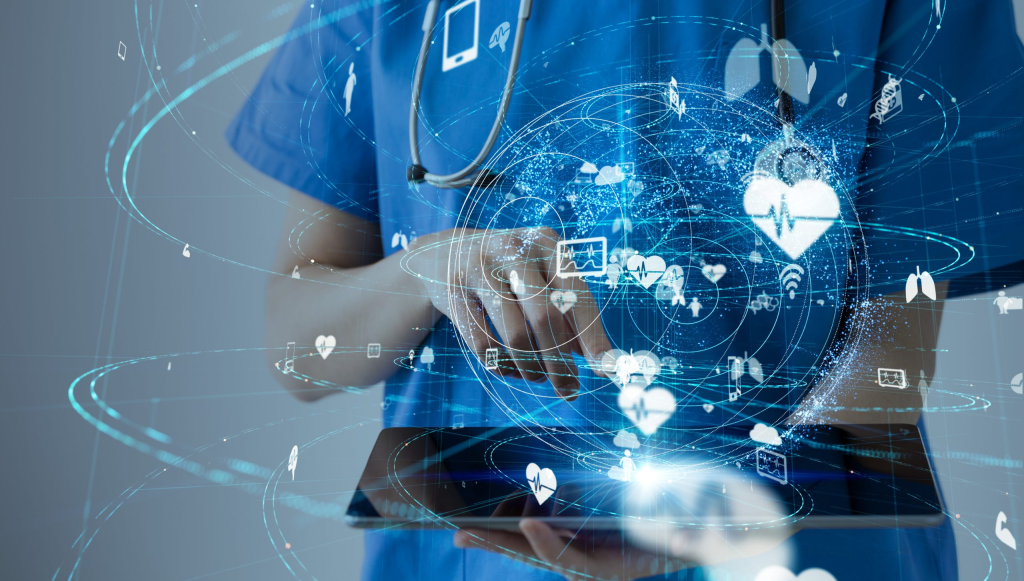The healthcare industry is undergoing a transformation driven by technological advancements. From telemedicine to AI-powered diagnostics, technology is enhancing healthcare delivery, making it more efficient, accessible, and personalized.

1. Telemedicine
Telemedicine has revolutionized the way healthcare is delivered, providing patients with access to medical care from the comfort of their homes. This has been especially important during the COVID-19 pandemic. Michael Shvartsman, a tech investor, notes, “Telemedicine is breaking down barriers to healthcare access. It’s about providing timely and convenient care to patients, regardless of their location.”
2. AI-Powered Diagnostics
Artificial intelligence is making significant strides in diagnostics, enabling faster and more accurate identification of diseases. AI algorithms can:
- analyze medical images,
- detect patterns,
- assist doctors in making informed decisions.
“AI-powered diagnostics are enhancing the accuracy and speed of medical diagnoses. It’s a game-changer for healthcare professionals and patients alike,” says Michael Shvartsman.

3. Wearable Health Devices
Wearable health devices, such as smartwatches and fitness trackers, are empowering individuals to monitor their health in real-time. These devices can track vital signs, physical activity, and even detect irregular heartbeats, providing valuable data for both users and healthcare providers. Michael Shvartsman observes, “Wearable health tech is putting health monitoring in the hands of individuals. It’s about proactive and personalized healthcare.”
4. Electronic Health Records (EHRs)
The digitization of health records through Electronic Health Records (EHRs) has streamlined the management of patient information. EHRs facilitate better coordination among healthcare providers, improve patient outcomes, and enhance data security. “EHRs are transforming how patient information is managed and shared. They ensure that healthcare providers have access to accurate and up-to-date information,” Michael Shvartsman explains.

5. Robotics in Surgery
Robotic-assisted surgery is another technological advancement that is improving surgical outcomes. Robots provide precision, flexibility, and control beyond human capabilities, leading to minimally invasive procedures and faster recovery times. Michael Shvartsman highlights, “Robotics in surgery is enhancing precision and patient outcomes. It’s a remarkable advancement in medical technology.”

As Michael Shvartsman concludes, “Technology is revolutionizing healthcare, making it more accessible, efficient, and personalized. The future of healthcare lies in continued innovation and integration of technology.” The intersection of technology and healthcare is leading to innovations that are transforming the industry. Telemedicine, AI-powered diagnostics, wearable health devices, EHRs, and robotics in surgery are just a few examples of how technology is enhancing healthcare delivery.
